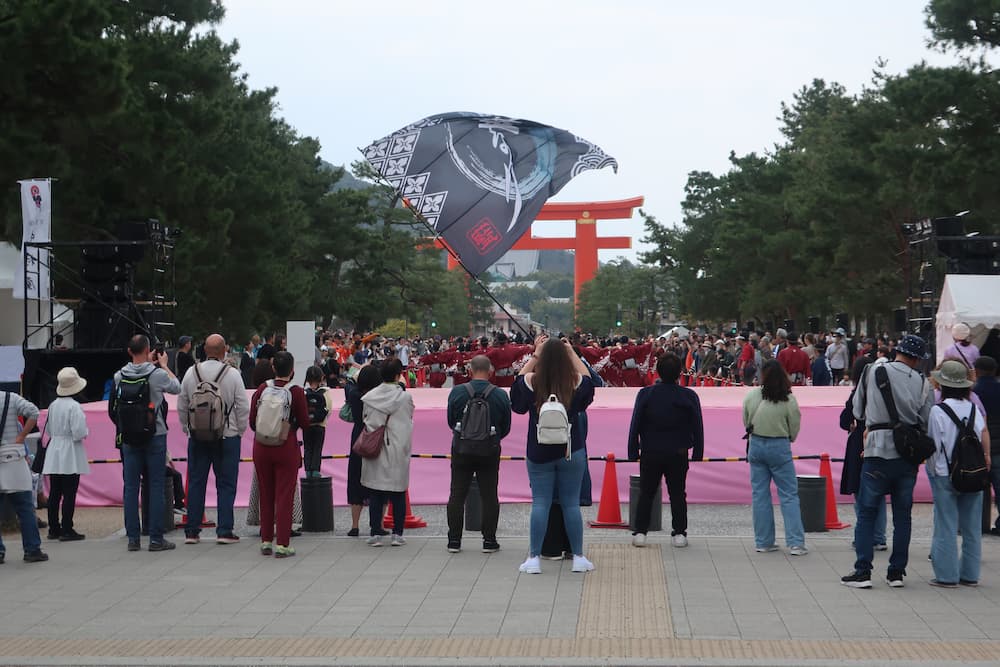When traveling in Japan, one thing you should be aware of is that English is not always widely spoken. In major tourist areas and large chain restaurants, you’ll often find English menus and staff who can communicate in English. However, once you venture into smaller cities or less touristy areas, you might need to rely on Japanese to get by. Forcing English on locals could lead to awkward or uncomfortable situations.
Learning a few basic Japanese phrases can greatly improve your travel experience, helping you connect with locals, get the help you need, and avoid misunderstandings.
In this article, we’ll introduce essential Japanese phrases that will make your trip smoother and more enjoyable!
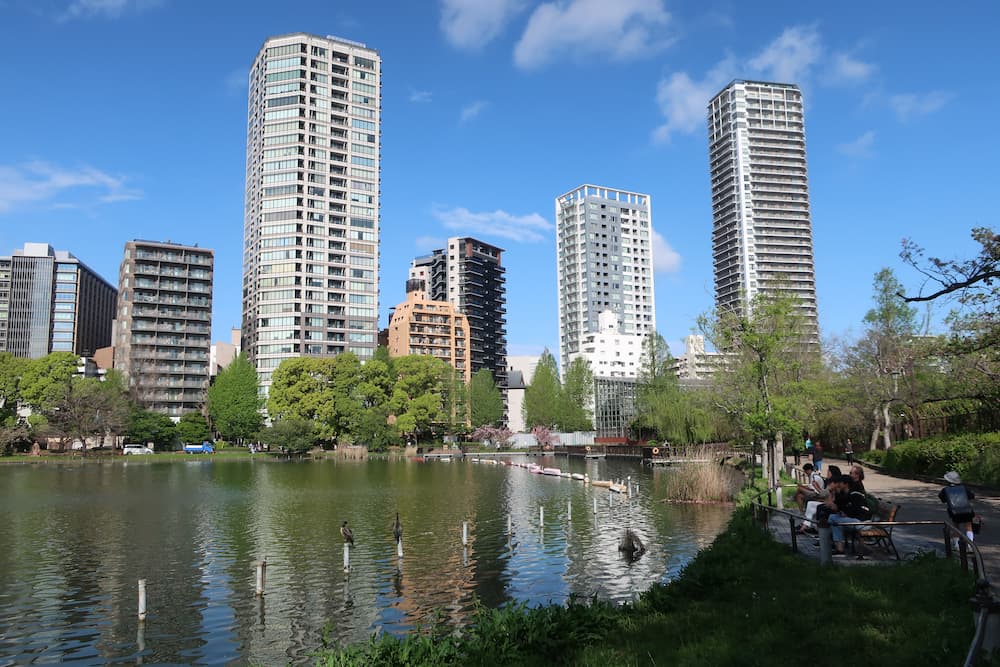
Essential Japanese Greetings for Travelers
While basic communication can often be done in English, using simple Japanese greetings shows respect and friendliness, which locals really appreciate. It can make a big difference in how smoothly your interactions go.
- Hello / Good Afternoon – Konnichiwa / こんにちは
A commonly used greeting during the day. In the morning, use “おはようございます (Ohayou gozaimasu)” for “Good Morning,” and in the evening, say “こんばんは (Konbanwa)” for “Good Evening.”
- Thank you – Arigatou /ありがとう
Although “Thank you” is generally understood, saying “ありがとう (arigatou)” in Japanese feels much more heartfelt and leaves a good impression. If you want to sound even more polite and respectful, you can say “ありがとうございます (arigatou gozaimasu),” which expresses even greater appreciation.
- Excuse Me / I’m Sorry – Sumimasen / すみません
An essential phrase for getting someone’s attention or apologizing if you accidentally bump into someone. It’s very helpful for smoothing over minor issues.
- Yes / No – Hai / Iie はい / いいえ
Saying “はい (hai)” for yes and “いいえ (iie)” for no in Japanese will help you communicate more clearly than relying on English.
- Goodbye – Sayounara / さようなら
While “Goodbye” is understood, ending a conversation with “さようなら” in Japanese will leave a warm impression.
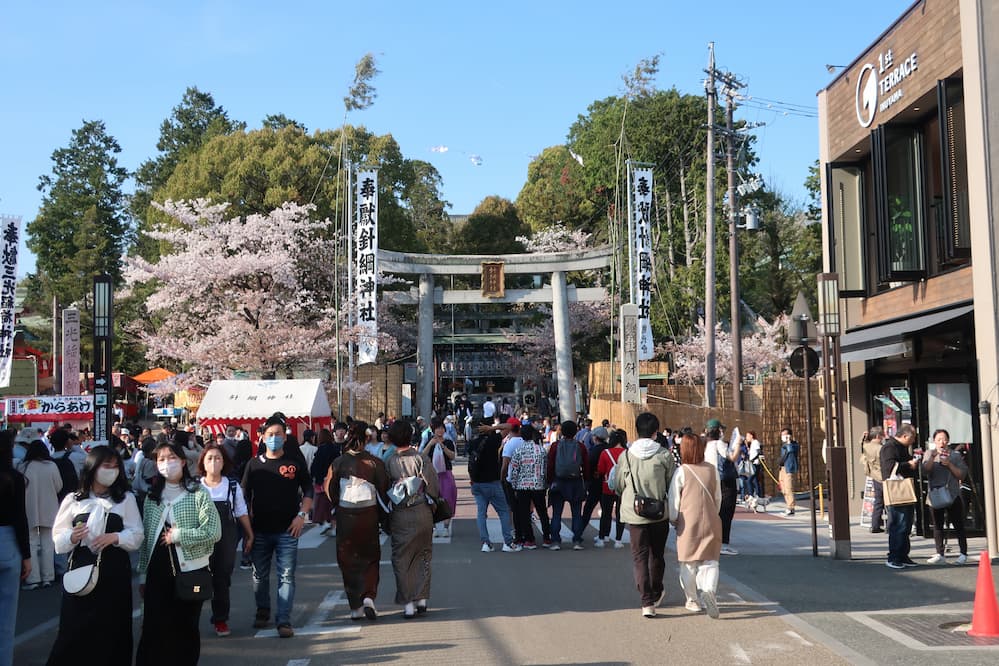
Asking for Help
Japan has made great strides in providing English signage and multilingual support, especially in major cities. However, there may still be times when you need to ask for help.
- Where is XXXX? – XXXX wa doko desu ka? / XXXXはどこですか?
Use this when you’re looking for a specific place.
Example 1: “Where is Kyoto Station?”
Kyouto-eki wa doko desu ka? (京都駅はどこですか?)
Example2: “Where is Kiyomizu-Dera?”
Kiyomizu-Deara wa doko desu ka? (清水寺はどこですか?)
- Can you speak English? – Eigo o hanasemasu ka? / 英語を話せますか?
Before launching into English, it’s polite to ask if the person understands English first.
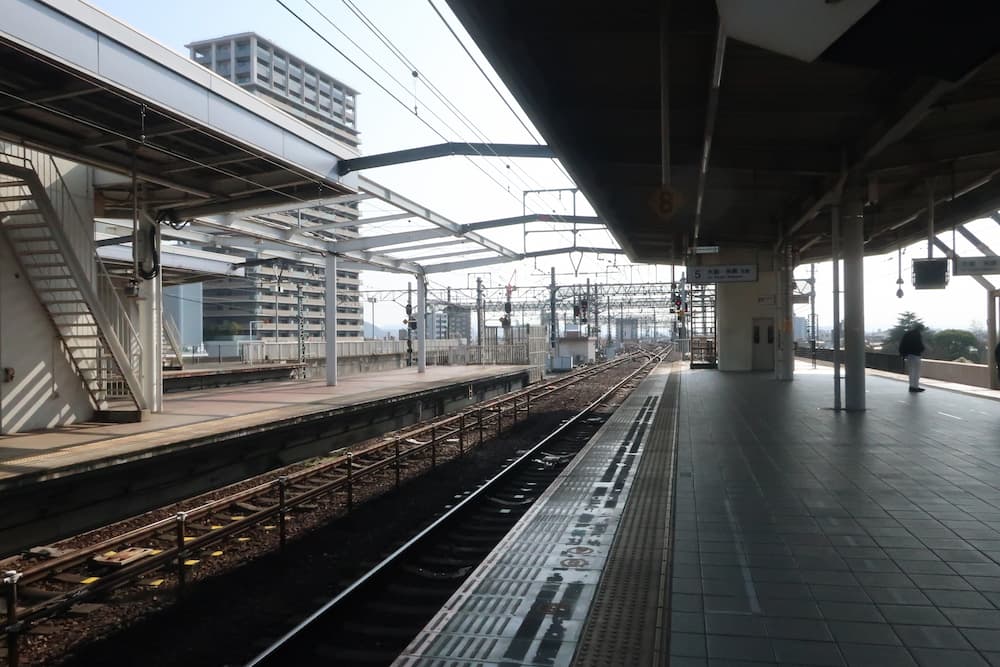
Transportation Phrases
Public transportation in Japan is convenient and efficient. English announcements are common on trains, but it’s still useful to know a few key phrases to make sure you’re headed in the right direction.
- Does this train go to XXXX? – Kono densha wa XXXX ni ikimasu ka? / この電車はXXXXに行きますか?
Example 1: “Does this train go to Tokyo?”
Kono densha wa Tokyo ni ikimasu ka? (この電車は東京に行きますか?)
Example 2 : “Does this train go to Kyoto?”
Kono densha wa Kyoto ni ikimasu ka? (この電車は京都に行きますか?)
- Does this bus go to XXXX? – Kono basu wa XXXX ni ikimasu ka? / このバスは○○に行きますか?
Example 1 : “Does this bus go to Kyoto?”
Kono basu wa Kyoto ni ikimasu ka? / このバスは京都に行きますか?
Example 2 : “Does this bus go to the station?”
Kono basu wa Eki ni ikimasu ka? / このバスは駅に行きますか?”
Useful Japanese Words
(Romaji is the Romanized spelling of Japanese words using the Latin alphabet.)
| English | Romaji | Japanese |
|---|---|---|
| Station | eki | 駅 |
| Bus | basu | バス |
| Subway | chikatetsu | 地下鉄 |
| Ticket | kippu | 切符 |
| Exit | deguchi | 出口 |
| Entrance | iriguchi | 入口 |
| Taxi | takushii | タクシー |
| Map | chizu | 地図 |
| Airport | kuukou | 空港 |
| Railway / Train | tetsudou | 鉄道 |
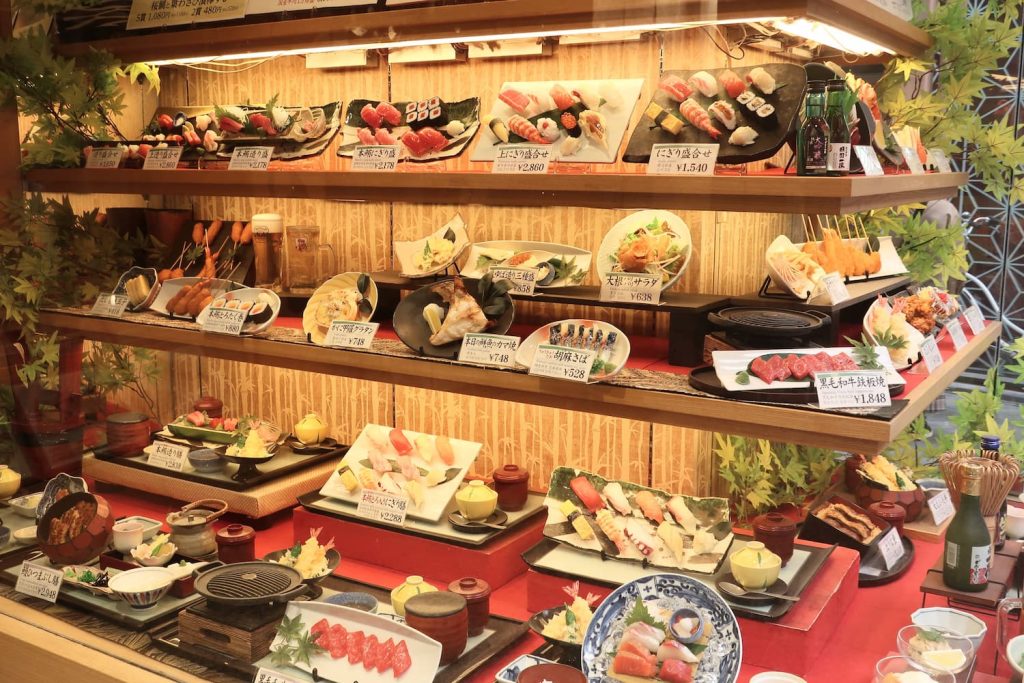
Dining Out Phrases
Restaurants in Japan generally fall into two categories: those where you order through tablets or vending machines and those where you order directly from staff. Here’s what you might need to say:
- Can I have a menu, please? – Menyuu o kudasai /メニューをください
Useful when you need an English menu or simply want to start ordering. - I’ll have this, please – Kore o kudasai / これをください
Point to the item on the menu and say this to order smoothly. - What do you recommend? – Osusume wa nan desu ka? / おすすめは何ですか?
Great for discovering local favorites when you’re unsure what to eat. - Check, please. – Okaikei onegaishimasu / お会計お願いします
When you’re ready to pay, say this to request the bill.
Note: In Japan, it’s common to bring the bill to the cashier rather than paying at the table.
Useful Japanese Words
(Romaji is the Romanized spelling of Japanese words using the Latin alphabet.)
| English | Romaji | Japanese |
|---|---|---|
| Menu | menyuu | メニュー |
| Recommendation | osusume | おすすめ |
| Bill / Check | okaikei | お会計 |
| No Smoking | kinen | 禁煙 |
| Restroom | toire | トイレ |
| Vegan | biigan | ビーガン |
| Vegetarian | bejitarian | ベジタリアン |
| Meat | niku | 肉 |
| Fish | sakana | 魚 |
| Vegetables | yasai | 野菜 |
| Salad | sarada | サラダ |
| Water | mizu | 水 |
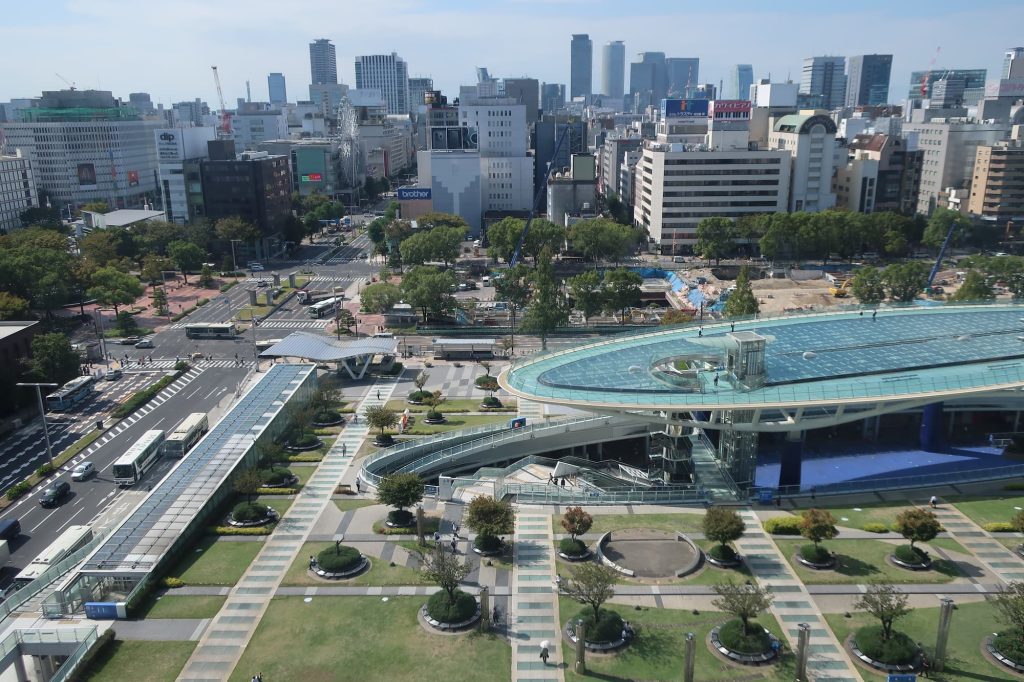
Shopping Phrases
Shopping in Japan can be a real highlight, especially for unique products you can’t find elsewhere. These phrases will help you enjoy it even more:
- Can I try this on? – Kore o shichaku shite mo ii desu ka? /これを試着してもいいですか?
Ask this when you want to try on clothes. - How much is this? – これはいくらですか? (Kore wa ikura desu ka?)
Perfect for checking prices when they’re not clearly marked.
- Can I use a credit card? –クレジットカードは使えますか? (Kurejitto kaado wa tsukaemasu ka?)
Many places accept credit cards, but it’s good to confirm before you pay.
Useful Japanese Words
(Romaji is the Romanized spelling of Japanese words using the Latin alphabet.)
| English | Romaji | Japanese |
|---|---|---|
| Credit card | kurejitto kaado | クレジットカード |
| Cash | genkin | 現金 |
| Bag (non-fashion item) | fukuro | 袋 |
| Change (money) | otsuri | おつり |
| Trying on clothes | shichaku | 試着 |
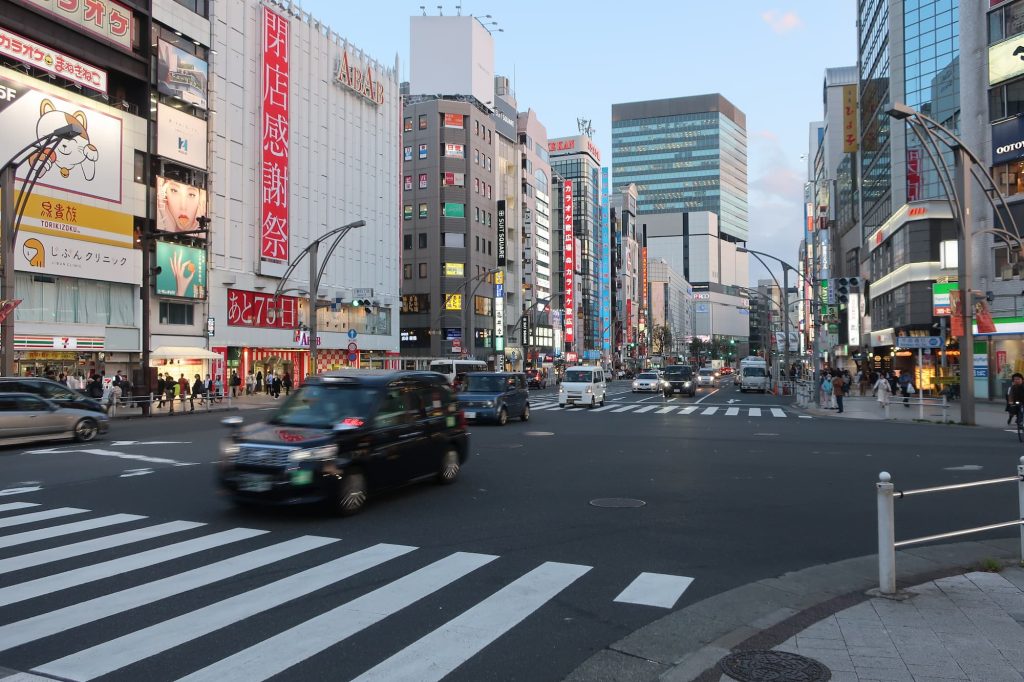
Emergency Phrases
Hopefully you won’t need these, but it’s better to be prepared.
- Help me! – Tasukete kudasai! / 助けてください!
Use this in urgent situations when you need immediate assistance. - Where is the hospital? – Byouin wa doko desu ka? / 病院はどこですか?
Essential if you’re feeling ill or injured. - Please call the police. – Keisatsu o yonde kudasai / 警察を呼んでください
If you’re involved in an incident or theft, use this phrase to ask for police assistance.
Useful Japanese Words
(Romaji is the Romanized spelling of Japanese words using the Latin alphabet.)
| English | Romaji | Japanese |
|---|---|---|
| Hospital | byouin | 病院 |
| Doctor | isha | 医者 |
| Ambulance | kyuukyuusha | 救急車 |
| Police | keisatsu | 警察 |
| Police officer | keisatsukan | 警察官 |
| Patrol car | patokaa | パトカー |
Final Tips
Even just a few words in Japanese can make a big difference in your experience. Locals will appreciate your effort, and your trip will be smoother and more memorable.
So before you go, practice these phrases — and get ready to enjoy the best of Japan!
